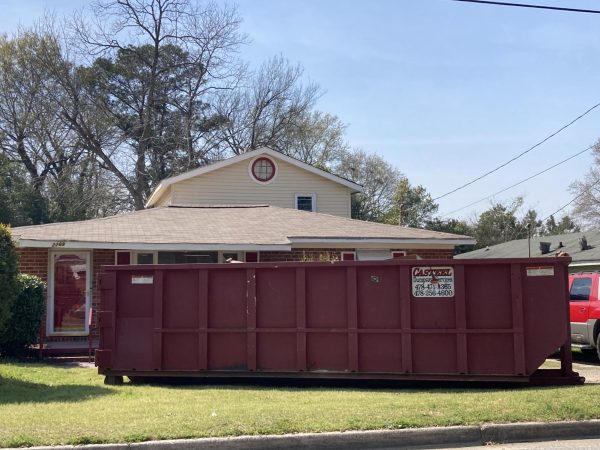WMUB Report: Voting
Host: Today we’ll be sitting down with Dr. Chris Grant to give you some very important information about voting in this year’s presidential election. So can you start by telling us a little bit about yourself and what you do?
Guest: Well, I’ve been teaching political science here at Mercer University for 15 years. I’m now a full professor and chair of the political science department. I did my doctorate at the University of Georgia, and I’ve been observing Georgia politics now, going on 30 years.
Host: So let’s talk about the election. For many students here on campus, this will be their first time participating in a national election, myself included. For many of us here, it’ll also be the first time that the results of the election are going to directly affect us. When we were kids, we didn’t know about politics and government funding, we didn’t pay taxes, we didn’t know how or if the person in office affected us. But now as adults, we’re definitely affected by the election. And that’s why it’s so important for us to participate in it. So can you start by telling me a little bit about how students will now be more directly affected by this election?
Guest: Well, I think that students have always been affected, whether they realize it or not. But certainly as you begin to think about making careers in an economy that is going to be determined by the leadership the country gets, and especially coming out of the COVID crisis that makes a big difference and what will be going on. And the contrast between the two presidential candidates, this year’s rather stark, and so it has a lot to do with, who do you have more confidence in to be able to put together a plan to put the country back together after this horrific crisis? And I don’t think anybody could have planned for the crisis. It’s something that happens. But the question now is who can put the country and the economy back together in a post COVID? society, that will be prosperous for all of us?
Host: How can students make sure that we are making informed decisions while voting? Could you give us some tips on what to look out for during debates or while taking in information on TV or social media?
Guest: Well, one of the things you can do is you can look at some of the projects that have been started by nonprofits to help students and others make good informed decisions. One is www.Vote smart.org. It’s a nonpartisan group that has both Republicans and Democrats on the board that do issue comparisons between candidates. And they do it not just for presidential races, but they do it for all the races, Congress, and even some of the State House and state senate races. So that’s a really great place to go for unbiased information. I think another thing you can do if you’re watching a debate is listen to what’s being said, What are the candidates telling you about how they’re planning to move forward? Now, one of the things that’s difficult about that is sometimes candidates can give some slanted information, it’s not completely unbiased. So you want to go back and look at their website. So they usually put more information about their plans on there. And it’s also really important to watch the media and talk to reputable news sources to see what they’re saying. So they can debunk anything that may not be completely true.
Host: And speaking of social media, could you tell us some ways that social media might be affecting the election and how it could affect our part in it?
Guest: Well, certainly in 2016, there is a good bit of interference via social media. Some of that came from outside the country, as well as some folks that are interested in our own country. You know, people like to put things on social media, because they sound good, I’ve been guilty of it myself. It is always important, we go back, in fact, check ourselves If it sounds too good, or sounds too much like it’s moving you in the direction you want to go, it probably needs to be due, you probably need to do some fact checking before you post it. There’s a lot of things out there that people assume are true. And it is part of the difficulty of living in the society that we live in where there’s so much information, but being able to sort through it. So I would talk to talk about talking to people you trust that you think following us and follow information. I would also be willing to suspend my disbelief and listen to sometimes things that you believe are absolutely true. Turn out not to be true. An example of this, as we’ve seen in the last year. Certainly last four years, we’ve seen some folks that have put up some outrageous things on both sides of the racial oppression that’s gone on by policing in the United States. Some folks that have tried to write about Black Lives Matters as if it is a terrorist organization, which it’s not. And we’ve also seen folks that have suggested the violence is more profound than it’s been. So the both sides have sought sought to exaggerate the other for political gain. So it really becomes incumbent on us to pay attention and find out what’s true and what’s not. Because we definitely have a problem in this country with police brutality. But we don’t want to over exaggerated. Or imagine that it’s not true. It’s hard to get the right amount of information and you can understand how easily it is to take people and pull them in one direction when there is definitely a problem to either exaggerated or other under accentuated and so that part of the problem social media.
Host: And so also, can you give us a little bit of information on what first time voters can expect when going to the polls and making sure that they’re successful in getting their vote counted?
Guest: Okay, well, Georgia, if you’re voting in Georgia, we have a new mechanism for voting, you go to a screen and it will be something that you’re familiar with probably if you’ve done any other touchscreen, you’ll be Give, give it a card, you’ll insert it into the screen, you’ll make your vote choices on the screen, you’ll be asked at the end to confirm that that you have made that the ballot is recording accurate choices for you, you’ll cast your ballot, the card will pop out, and then a piece of paper will be printed out from machine, that piece of paper will then be inserted into another machine near the exit place for your polling location. It will scan in your choices and keep count on a separate register on a different machine who you voted for. And then there will be a paper ballot record that’s also there. In case of recounts, so your votes being counted not just once, twice, three times we have a record of how you cast your ballot. So in Georgia, we’re going to have a paper trail and we have to electronic trails of how people vote. So it’s a little complicated, but it is there to ensure that votes are counted accurately. I also think this process is slowing down. The time you wait at the poll some because the technology is new, a lot of poll workers are new. And so I would be patient when I go to vote, I will tell you that probably the best time to vote if you’re a Georgia voter is going to be this coming week, starting on Monday through Friday of this week. Because this is the second week early voting started last week. And it goes through next week in the middle week is typically when people are less likely to go to the polls first week everybody who’s thinking about it goes and votes in lines. We’re literally around the building at the Bibb county board of elections. This week, it’ll take off some and then next week, people that haven’t gotten to it the first few weeks like I got to go vote and so they’ll get out but this week is probably the week, that’ll be the easiest vote on election day. It really depends on how fast things are going. We know a lot of people are voting early this year either by absentee ballot, or in the early voting process. So election day may be faster than people expect. But in the past, on election day in a presidential election, especially a presidential election like this one, where there’s a lot of interest in what’s going on, it’s probably going to be very long lines. And I’ve even seen people bring collapsible chairs for waiting in line. So you want to you want to make sure you’re ready to stand for a couple of hours if you go on election day.
Host: Wow. Thank you for that information. Dr. Grant, do you have any other information want to add when we’re talking about this topic?
Guest: I think the voting is the most important thing we do as American citizens. And I think that part of being a good voter is taking the time to inform yourself about the issues. Know what’s important to you and know where the candidates stand. Sometimes that means voting for one party and all the candidates that are on that party’s ticket. Sometimes it can mean splitting up your vote between two parties. And so I think the voters have to take the time to inform themselves. Whether you agree with me on issues or you completely disagree with me on issues. It is critically important for representative democracy to work to have people voting. And even if you say oh, I don’t like either of the candidates. You probably like one a little bit more than the other and you probably dislike one a little bit more than the other. make the choice even if it’s not the choice that you would like to have make. You want to make that choice.


















